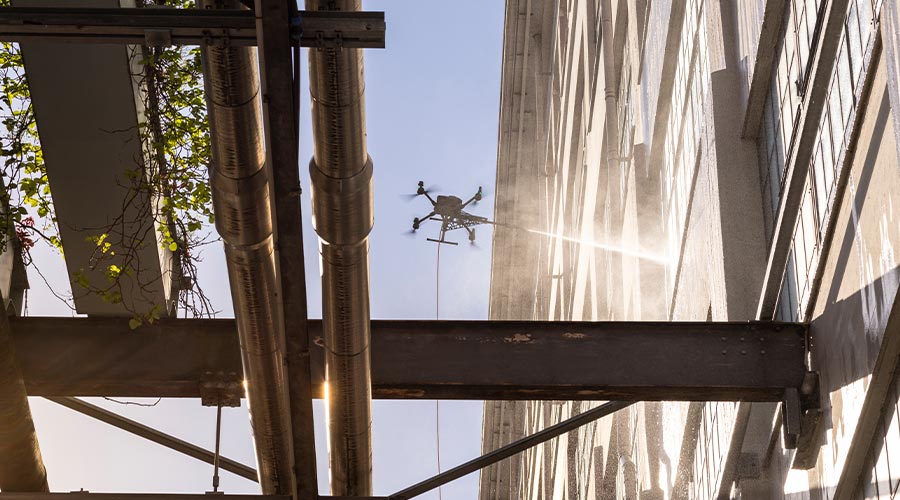
There are many aspects of cleaning that create impression points — dirty windows are one of them. Unfortunately, window cleaning creates safety concerns and requires a lot of labor time. As labor shortages grow, safety regulations tighten, and pressure mounts to reduce environmental impact, the industry is being forced to evolve.
Exerts at Interclean Amsterdam, the world's largest commercial cleaning event, reported on technology that is simplifying this task and is a growing trend throughout Europe. Drone-based systems allow workers to execute the work quicker, while also being safe and sustainable.
According to the reports, some countries are advancing quicker than others when it comes to drone-based cleaning. For example, Norway and Singapore have been quick to adopt the technology thanks to centralized building ownership and public-sector support. In Singapore, where the government owns most high-rise housing, drones have been widely deployed. Norway has gone further, integrating drone cleaning into national tender frameworks. In Japan, new safety rules are phasing out rope access cleaning, creating urgency to adopt safer alternatives.
In countries where adoption has lagged, Interclean Amsterdam experts say regulation is often the biggest roadblock. Outdated or unclear drone laws create uncertainty, making it risky for companies to invest or scale. Privacy concerns add another layer of complexity, particularly in regions with strict surveillance controls. In the Middle East, even navigation feeds from onboard cameras can trigger compliance issues.
To learn more about how to balance data and privacy concerns, as well as how drones can be used on surfaces other than windows, click here for the full article.

 Celebrating BSCAI's 60th Anniversary eBook
Celebrating BSCAI's 60th Anniversary eBook The Down and Dirty on Cleaning in Virus Season
The Down and Dirty on Cleaning in Virus Season How Surfactant Use is Expanding in Commercial Cleaning
How Surfactant Use is Expanding in Commercial Cleaning